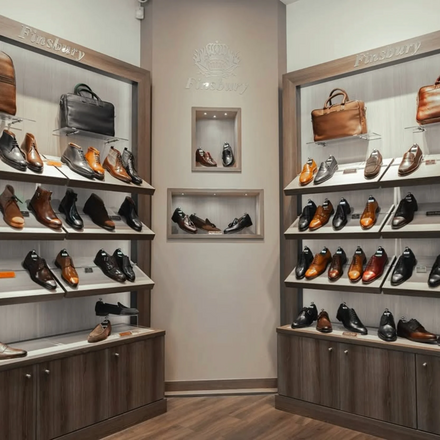Franchise cost breakdown

Before signing a franchise deal this fall, learn about the hidden costs beyond the initial fee—renovations, equipment, and royalty fees.
As autumn rolls in and entrepreneurs consider franchise opportunities, it is crucial to have a clear understanding of the real costs involved in starting a franchise. Often, prospective franchisees focus on the visible costs, such as the initial franchise fee, while overlooking the hidden expenses that can have a significant impact on profitability. To avoid financial setbacks, it’s essential to be fully prepared and aware of all costs before signing any agreement.
What are you really paying for?
The most obvious cost when starting a franchise is the initial franchise fee. This is the price you pay to gain access to the brand, its business model, and the support offered by the franchisor. Franchise fees can vary widely depending on the type of business and the size of the brand. For example, small service-based franchises can have fees starting around €10,000 to €20,000, while larger, more established brands in the food or retail sectors can demand fees of €50,000 to €100,000 or more.
What does this fee actually cover? Typically, it grants you the right to use the brand’s trademarks, access to their proprietary business systems, and initial training. However, it’s important to ask exactly what is included. Some franchisors offer extensive support in setting up your business, including marketing materials and site design, while others provide only basic guidance. This is where additional costs can creep in, so it’s important to clarify this upfront.
Renovation and location setup
Renovating and setting up your franchise location can be one of the biggest hidden costs. Depending on the industry, you may need to adhere to strict guidelines for the layout, design, and even the decor of the premises. For instance, food franchises like McDonald’s or Subway have very specific interior design requirements, which can lead to significant renovation costs. In some cases, these can range from €50,000 to €150,000, depending on the condition of the space and the size of the location.
Even smaller franchises, such as coffee shops or fitness studios, may require customized branding elements, furniture, and specialized equipment. For example, a small café franchise like Caffè Nero may require specific kitchen equipment, signage, and seating arrangements that meet their brand standards. These costs are often not covered by the initial franchise fee and must be shouldered by the franchisee. It’s crucial to budget for these upfront investments to avoid unpleasant surprises.
Equipment and inventory costs
Many franchises require specialized equipment to run their operations, and these costs are often overlooked in the initial calculations. For example, fitness franchises such as Anytime Fitness or Orangetheory need high-end gym equipment, which can easily add up to €50,000 to €100,000. Similarly, restaurant franchises require commercial kitchen equipment, which is not only expensive but also requires regular maintenance and repair.
In addition to equipment, you’ll need to budget for your initial inventory. Food and retail franchises often mandate the purchase of stock from approved suppliers, which can limit your flexibility and raise costs. For instance, a fashion retail franchise like Zara might require you to carry a minimum amount of inventory, leading to initial stock costs in the range of €20,000 to €50,000, depending on the size of the store.
Ongoing royalty and marketing fees
Beyond the initial setup costs, franchisees must also account for ongoing expenses such as royalty fees and marketing contributions. Most franchises charge a percentage of your revenue as a royalty fee. This typically ranges from 5% to 10% of gross sales, depending on the brand. For example, Subway charges a royalty fee of around 8%, while KFC asks for a similar percentage. In addition to this, many franchises require you to contribute to a national or regional marketing fund, which can be an additional 2% to 5% of gross sales.
While these fees are intended to support the overall brand, they can eat into your profits, especially during the early stages when sales might be slower. It’s essential to factor these ongoing costs into your business plan to ensure that you can maintain profitability after paying these recurring fees.
Legal and administrative costs
Before signing a franchise agreement, you will need to cover various legal and administrative fees. Franchise agreements are often complex and require careful review by a lawyer with franchising expertise. Legal fees can range from €1,500 to €5,000, depending on the complexity of the contract. Additionally, there may be administrative costs associated with registering your business, obtaining permits, and meeting local regulations, all of which can add another €2,000 to €10,000 to your initial costs.
Budgeting for success
To avoid financial pitfalls, it’s essential to create a comprehensive budget that includes all potential costs, both visible and hidden. Start by thoroughly reviewing the franchise disclosure document (FDD) and asking the franchisor detailed questions about what is covered by the franchise fee. Be sure to account for renovation costs, equipment purchases, and any required inventory. Additionally, consider the impact of ongoing royalties and marketing fees on your cash flow.
By planning carefully and being fully aware of all the costs involved, you can set your franchise up for success and avoid financial strain. Remember that franchises can be profitable ventures, but only if you enter into them with a clear understanding of the total investment required.
Featured franchises
No featured franchises
Breaking news
Show all
LA BARBE DE PAPA
Step into a premium grooming network built for growth, offering a structured franchise model with clear financials and strong operational support.

Pandora Greenbox franchise
Pandora Greenbox offers a scalable fast-casual concept combining healthy cuisine, smart design and strong unit economics across Europe.

Expanding premium footwear through franchising
A French footwear brand expanding through franchising, offering structured entry into premium shoe retail with established operational standards.

Franchise model in sustainable water solutions
An international franchise network focusing on water generation and distribution technologies designed for commercial and residential markets.


